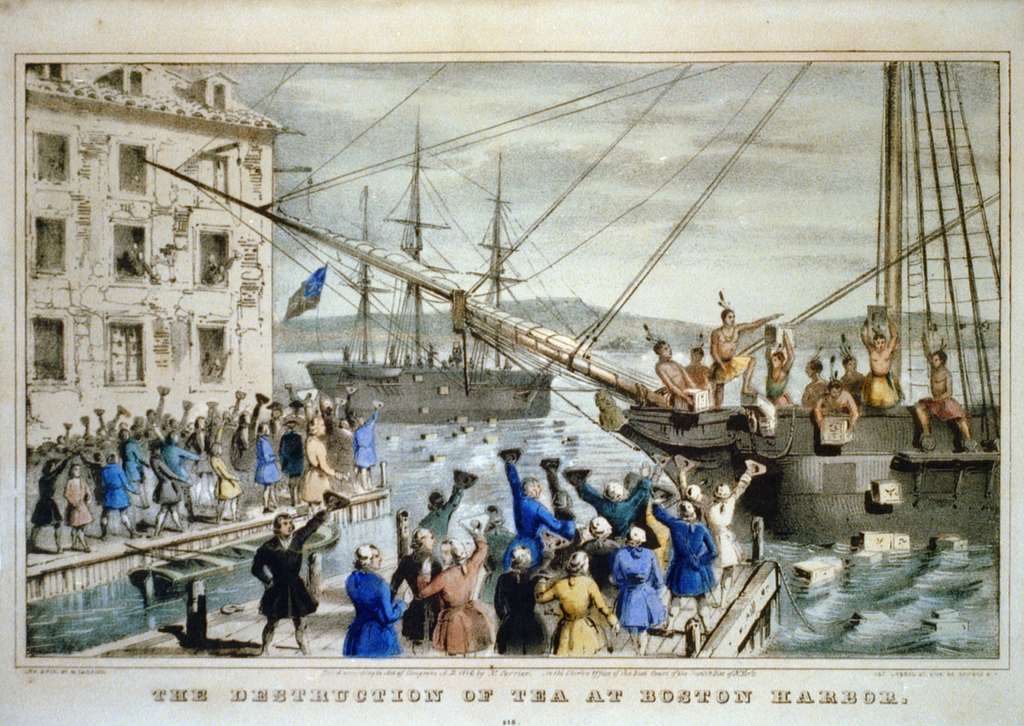The Boston Tea party was a political protest in Boston, Massachusetts on 16 December, 1773 where 342 chests of Tea were destroyed by throwing in the harbour. Eventually this protest was a significant event leading to the American Revolutionary War and establishment of the United States.
The protest was organised by the Sons of Liberty, a group of American colonists who opposed British taxation policies. The event was a response to the Tea Act, which was passed by the British Parliament in May 1773. The Tea Act allowed the British East India Company to sell tea directly to the American colonies, bypassing colonial merchants and effectively creating a monopoly.
The colonists viewed the Tea Act as another example of “taxation without representation,” as they had no voice in the British Parliament. This sentiment had been growing since the passage of the Stamp Act in 1765 and the Townshend Acts in 1767, which imposed taxes on various goods imported into the colonies.
On the night of the Boston Tea Party, a group of colonists disguised as Mohawk Indians boarded three British ships – the Dartmouth, the Eleanor, and the Beaver – and dumped 342 chests (roughly 46 tons) of tea into Boston Harbour. This act of defiance was a turning point in the relationship between the American colonies and Great Britain.
The consequences of the Boston Tea Party were significant. In response to the protest, the British government enacted the Coercive Acts (also known as the Intolerable Acts) in 1774. These acts included the closure of Boston Harbor, the dissolution of the Massachusetts colonial government, and the quartering of British troops in the homes of colonists. The Coercive Acts further fueled resentment among the colonists and led to the formation of the First Continental Congress, which convened in September 1774 to address the grievances of the colonies.
The Boston Tea Party and the subsequent events played a crucial role in the lead-up to the American Revolutionary War. The conflict between the American colonies and Great Britain escalated, culminating in the Battles of Lexington and Concord in April 1775. The Revolutionary War ultimately resulted in the independence of the United States from British rule.
16th of December is still celebrated as the anniversary of the Boston Tea Party in Boston each year.
In summary, the Boston Tea Party was a pivotal event in American history that demonstrated the growing dissatisfaction of the colonists with British taxation policies. The protest and its aftermath contributed to the outbreak of the American Revolutionary War and the eventual establishment of the United States as an independent nation.




